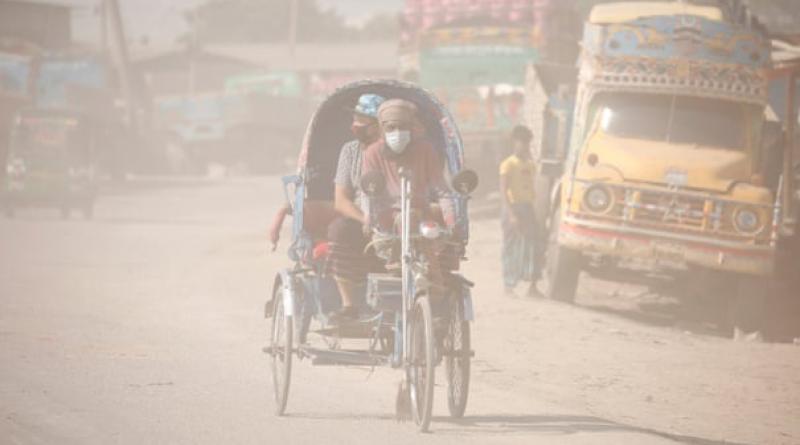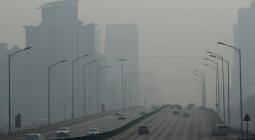Man saved from deportation after pollution plea in French legal 'first'.

Court says man would face ‘worsening of his respiratory pathology due to air pollution’ in country of origin.
A Bangladeshi man with asthma has avoided deportation from France after his lawyer argued that he risked a severe deterioration in his condition, and possibly premature death, due to the dangerous levels of pollution in his homeland.
In a ruling believed to be the first of its kind in France, the appeals court in Bordeaux overturned an expulsion order against the 40-year-old man because he would face “a worsening of his respiratory pathology due to air pollution” in his country of origin.
“To my knowledge, this is the first time a French court has applied the environment as one of its criteria in such a case,” the unnamed man’s lawyer, Ludovic Rivière, said. “It decided my client’s life would be endangered by the air quality in Bangladesh.”
Yale and Columbia universities’ Environmental Performance Index ranks Bangladesh 179th in the world for air quality in 2020, while the concentration of fine particles in the air is six times the World Health Organization’s recommended maximum. Air pollution, both ambient and household, was an extremely high risk factor in the 572,600 deaths in Bangladesh that were caused by noncommunicable disease in 2018, according to WHO figures.
The court took into consideration the fact that the drugs the man is receiving in France are not available in Bangladesh, and that the Bangladeshi health system can only provide the night-time ventilation equipment he needs for his sleep apnoea in hospital.
It also heard evidence that the man’s father had died of an asthma attack at the age of 54, Rivière said, and that since arriving in France and beginning treatment, his respiratory capacity had increased from 58% in 2013 to 70% in 2018.
“For all these reasons, the court decided that sending my client back to his country would mean putting him at real risk of death,” the lawyer said. “Respiratory failure as a result of an asthma attack would be almost inevitable.”
The man arrived in France in 2011 after fleeing persecution in his home country. He settled in Toulouse, found work as a waiter, and in 2015 was given a temporary residence permit as a foreign national requiring medical treatment.
In 2017, however, doctors advising the French immigration authorities recommended that his condition “could be adequately treated in Bangladesh”, and two years later the local Haute-Garonne prefecture issued an expulsion order.
A lower court in Toulouse overturned the deportation order in June last year, purely on the grounds that the relevant drugs were not in fact available in the man’s home country. The Bordeaux court went even further in rejecting the prefecture’s appeal, saying that the environmental criterion must also be taken into account.
Dr Gary Fuller, an air pollution scientist at Imperial College London, said this was the first case he was aware of in which the environment had been cited by a court in an extradition hearing. “The court has effectively declared that the environment – air pollution – meant it was unsafe to send this man back,” he said.
Fuller said the case fed into a steadily growing broader agenda about the right to a healthy environment. “There’s a UN rapporteur on this issue, and people around the world – particularly in countries with less developed environmental and health laws – who are developing thinking about declaring a right to a healthy environment.”
Many countries set standards for air and water quality, for example, but “stop short of actually saying you have a right to be protected from environmental harm”, Fuller said. The recent case of Ella Kissi-Debrah, the nine-year-old London girl who died in February 2013, could be seen as part of the same process, he said.
A London coroner made legal history last month by ruling that air pollution was a cause of Ella’s death, with acute respiratory failure and severe asthma. Court cases were being brought in other countries in Europe, Fuller said, as part of a growing trend around the world to seek institutional accountability for unhealthy environments.
12 January 2021
The Guardian




